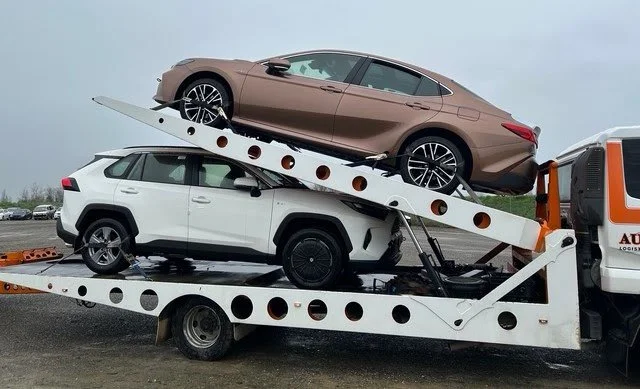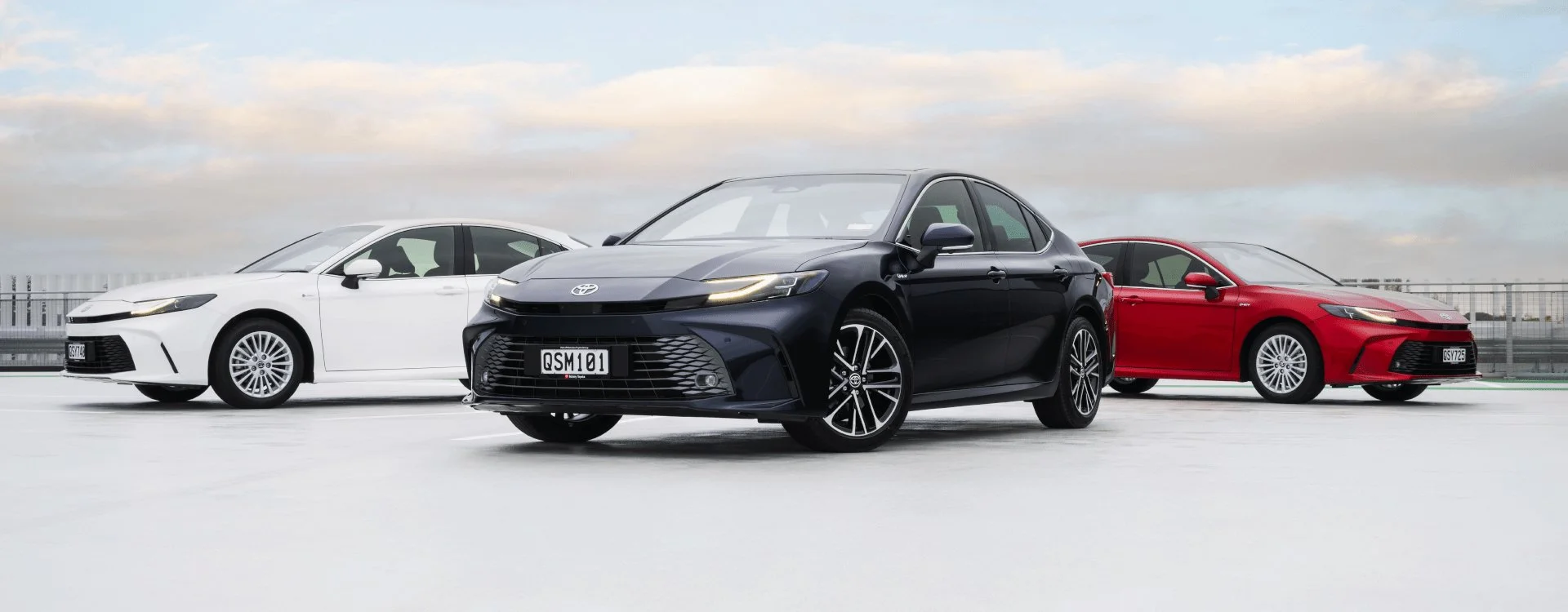Toyota NZ celebrates hybrid milestone, direct import
The Toyota RAV4 hybrid is the top selling passenger vehicle. Photos: Toyota NZ
Toyota New Zealand has reached a major sustainability milestone, with more than 100,000 New Zealand new hybrid electric vehicles (HEVs) sold.
The milestone reflects more than two decades of investment in low-emissions technology since the Prius first launched in New Zealand in 2003; Toyota is now introducing the sixth generation of hybrid.
When Toyota NZ tested the Prius around the roads of its head office at Palmerston North, staff told me that they came across so many stunned cyclists who didn’t hear the silent vehicle driving behind them!
But fast forward to 2025 and not only are cyclists aware of the hybrid vehicles, but the HEVs make up 95% of Toyota’s passenger vehicle sales. It’s also no surprise that the popular RAV4 Hybrid is leading the charge as the country’s top-selling passenger vehicle in 2025 with 5,184 units sold year-to-date.
The Prius was the first hybrid vehicle in New Zealand for Toyota.
Toyota NZ’s Assistant Vice President – Marketing, Sustainability and Technology, Susanne Hardy, said the 100,000 mark is a significant achievement on the company’s journey toward a lower-carbon future.
“This milestone reflects the commitment of New Zealand drivers to reducing emissions and the growing appeal of practical, affordable hybrid vehicles,” she says.
“It’s a critical step toward our goal of reducing our CO2 emissions by 46% by 2030 and achieving carbon neutrality by 2050 across our operations and vehicle fleet.”
Hardy believes the increase in popularity of hybrid vehicles corresponds to an increase in both performance and economy from Toyota’s hybrid powertrains.
A RAV4 (bottom) and Camry were directly imported to Nelson.
“Our hybrid vehicles continue to get better, with greater efficiency without sacrificing performance. The sale of our 100,000th hybrid is a significant milestone, but it’s also just the beginning for us as we work towards a net-zero carbon future for our business.
Toyota New Zealand is also investing in battery recycling, extending the lifespan of vehicles through reuse initiatives, and will continue to grow its range of BEVs.
“We’re taking a full-lifecycle approach to sustainability, from how we source and ship our vehicles, to how we power, service and eventually recycle them,” said Hardy.
“It’s about catering to the diverse needs of our customers and communities while simultaneously reducing our environmental impact, now and into the future.”
As part of its wider sustainability strategy, Toyota New Zealand is also rethinking how vehicles are delivered, with the first-ever direct import of vehicles into Port Nelson completed in June as part of a pilot to improve the sustainability and efficiency of its national supply chain.
The Camry hybrid is also popular for Toyota NZ.
A Toyota RAV4 and a Toyota Camry arrived in Nelson as part of a pilot initiative to test systems and processes for direct imports into the South Island port.
Toyota NZ Chief Strategic Officer, Andrew Davis, says the pilot has exciting potential, and if successful, could be scaled quickly.
“This is about improving our customer service by driving smarter logistics and lowering our CO2 footprint. By importing vehicles directly into Nelson rather than trucking them from Lyttelton, we’re increasing our supply chain efficiency by reducing handling, saving time for delivery to customers, and cutting our carbon emissions. It's a small first step, but it’s part of our ongoing strategy to make our operations more sustainable,” he says.
Toyota data suggests the company could potentially reduce emissions in the South Island supply chain by 14% by directly landing pre-sold vehicles for customers of Bowater Toyota in Nelson and Blenheim Toyota in Blenheim. Toyota believes that figure could grow to up to 1000 vehicles annually via coastal shipping, rather than road freight.




